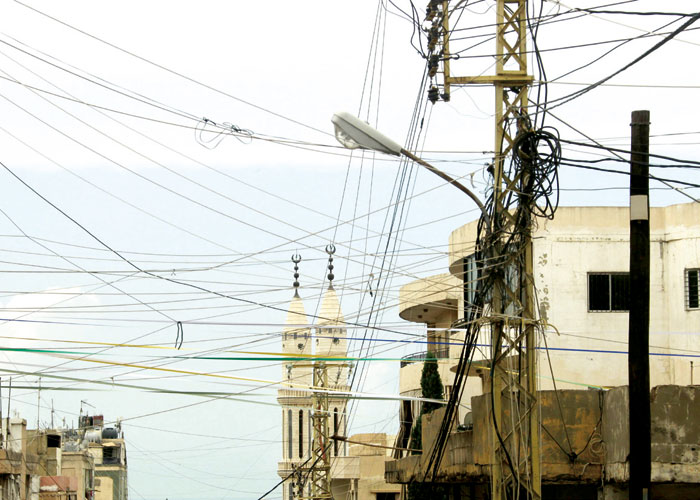Failure of Lebanon’s political class causes surge in corruption
Makram Rabah/ The Arab Weekly
29 مايو 2017

Much of the myth that surrounds Lebanon anchors its past in the resilience of its people and their pioneering role in finance and banking. Some have even gone so far as to refer to this small republic as the “Switzerland of the Middle East.”
However, this isn’t quite the full picture. Transparency International placed Switzerland fifth on its Corruption Perceptions Index; Lebanon is No. 136 out of the 175 countries included.
While corruption is by no means new to the Lebanese political landscape, its recent surge has largely been due to the failure of the political class to agree on key issues, primarily electoral reform, waste management and the ever-elusive electricity crisis. Governments since the end of the civil war in 1990 have failed to resolve the country’s wide-ranging infrastructure challenges, with rationing still a reality across the country.
One issue that remains far from simple is the electricity crisis, which exemplifies the absence of common sense and proper planning by all sides. For most of Lebanon’s political actors, the electricity sector is a cash cow that gives them unmitigated access to much-needed funds to run their clientelist system. This sector accounts for half of the Lebanese national debt, which stands at a staggering $64 billion, a number that could increase under recent proposals by the government of Prime Minister Saad Hariri to address the issue.
In a short-sighted and perhaps reckless move, Hariri agreed to endorse a plan proposed by his new allies, the Free Patriotic Movement (FPM), that suggests leasing three additional Turkish power-generating ships to replace the two now operating at a ridiculous expense of almost $1.2 billion. Hariri’s zeal for this flawed proposal stems from his recent reconciliation with the FPM, resulting in the election of President Michel Aoun.
Previously bitter enemies, Hariri and the FPM leader Gebran Bassil, dismissed the suggestion of their alliance being drawn from financial necessity. Instead, they chose to frame it as one with progressive developmental cross-sectarian aims.
However, many of the rumours surrounding this deal, as well as similar proposals, have been fuelled by a blatant disregard for transparency and the proper procedures that govern government tenders, especially ones that come with a hefty price.
That notwithstanding, opposition to the leasing of the ships did not come from the FPM’s traditional political rivals but rather from their main Christian ally, the Lebanese Forces (LF), which has echoed the concerns of other factions over the way this deal is being conducted. Instead of developing its own power plants and a sustainable electricity plan, the government is planning to spend almost $1.2 billion, with more than $800 million either unaccounted for or unwisely dispensed.
The crux of the Turkish ships fiasco is that this wheeling and dealing has proven enough to essentially sever one of the FPM’s key alliances, its relationship with the LF.
Over the last few months, the FPM and the LF have demonstrated completely different philosophies to governance and to public office. While the latter has been accused of irregularities in their ministerial portfolios over the last decade, the LF has refused to rubber stamp any project without due diligence. Yet their sectarian alliance has kept both Christian parties joined at the hip, maintaining a unified front and ensuring their communities’ so-called rights.
It might be conceivable to most of the Lebanese population to condone this. However, the depths of corruption plumbed so far may present a new low, even for Lebanon.
If the Lebanese political elite refuses to acknowledge this, perhaps the taxpayers might. After all, it is they who are funding these reckless projects, which will only ensure that the electricity sector, as well as the whole country, is dead in the water.
 عن أمل جنبلاط المتجدد: لبنان يستحق النضال
عن أمل جنبلاط المتجدد: لبنان يستحق النضال
 صحافيون أم عرّافون!
صحافيون أم عرّافون!
 ماذا يجري داخل أروقة بيت الكتائب المركزي؟
ماذا يجري داخل أروقة بيت الكتائب المركزي؟


 عن الخرائط التي تُرسم والإتفاقات التي تتساقط!
عن الخرائط التي تُرسم والإتفاقات التي تتساقط!
 “الإنحراف في الحياة”/ بقلم كمال جنبلاط
“الإنحراف في الحياة”/ بقلم كمال جنبلاط
 هاشتاغ #صار_الوقت يحل أولاً في حلقة جنبلاط
هاشتاغ #صار_الوقت يحل أولاً في حلقة جنبلاط
 طاولة نقاش عن أزمة الصحافة في جامعة AUST
طاولة نقاش عن أزمة الصحافة في جامعة AUST
 عبدالله: ليظهر لنا وزير مكافحة الفساد حرصه في صفقات البواخر والفيول
عبدالله: ليظهر لنا وزير مكافحة الفساد حرصه في صفقات البواخر والفيول
 عبدالله: غريب أمر وزارة مكافحة الفساد!
عبدالله: غريب أمر وزارة مكافحة الفساد!

 Comment to Uri Avnery: How Sad What Is Looming Ahead
Comment to Uri Avnery: How Sad What Is Looming Ahead
 “Not Enough!”
“Not Enough!”
 … لمن لم يقرأ يوسف البعيني/ بقلم وسام شيّا
… لمن لم يقرأ يوسف البعيني/ بقلم وسام شيّا
 كمال جنبلاط في مولده الأول بعد المائة: تعاليمه وأفكاره ما زالت الحلّ/بقلم عزيز المتني
كمال جنبلاط في مولده الأول بعد المائة: تعاليمه وأفكاره ما زالت الحلّ/بقلم عزيز المتني
 رئيس حزب/ وليس (… سابقاً)/ بقلم د. خليل احمد خليل
رئيس حزب/ وليس (… سابقاً)/ بقلم د. خليل احمد خليل
 التوازن السياسي في لبنان
التوازن السياسي في لبنان
 لبنان… مشاريع انقلابية مؤجلة
لبنان… مشاريع انقلابية مؤجلة
 جنبلاط وحَمَلة أختام الكاوتشوك
جنبلاط وحَمَلة أختام الكاوتشوك
 Le Liban est un symbole de tolérance
Le Liban est un symbole de tolérance
 Our Automated Future
Our Automated Future
 The True Origins of ISIS
The True Origins of ISIS
 Les Misérables vs. Macron
Les Misérables vs. Macron
 عذراً أيها المعلم/ بقلم مهج شعبان
عذراً أيها المعلم/ بقلم مهج شعبان
 رساله الى المعلم / بقلم ابو عاصم
رساله الى المعلم / بقلم ابو عاصم
 إلى روح القائد والمعلم كمال جنبلاط/ بقلم أنور الدبيسي
إلى روح القائد والمعلم كمال جنبلاط/ بقلم أنور الدبيسي
 أسرار وعناوين الصحف ليوم الجمعة 14 كانون الاول 2018
أسرار وعناوين الصحف ليوم الجمعة 14 كانون الاول 2018














